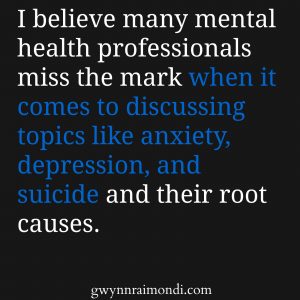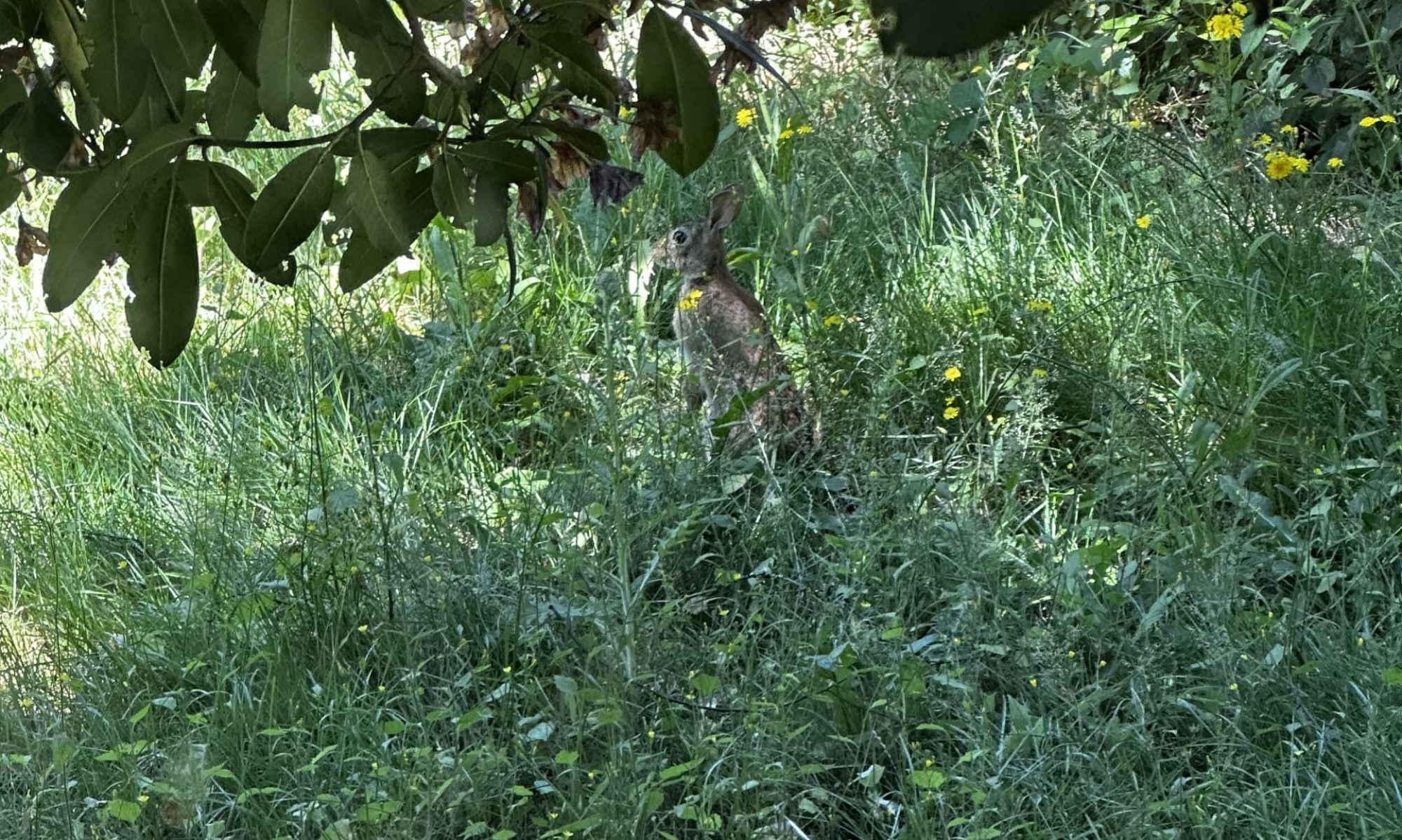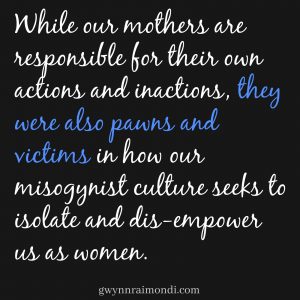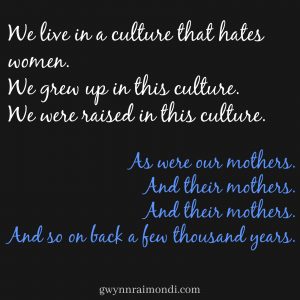They are all innocent until proven guilty. But not me. I am a liar until I am proven honest.
~Louise O’Neill, Asking For It
I’ve read many criticisms of the graphic portrayal of suicide in the Netflix series 13 Reasons Why. I’ve seen posts and articles railing against the “irresponsibility” of Netflix to “glorify” suicide and countless comments from mental health professionals (i.e. my colleagues) about how now there will be an epidemic of suicides across the country and how the show doesn’t once mention mental illness as the “real” cause of suicide and other towing the line statements and declarations.
With every criticism, particularly from therapists, social workers and psychologists, I became more and more irritated. I disagree with there stance and opinions, yes, but my reaction was more visceral, more intense than a simple professional differing of opinion. I was furious. I was rolling my eyes. And at one point with one discussion I was literally shaking.
It took a conversation with my own therapist, being in a space to talk without interruption or needing to defend my opinion and reaction, to understand why so much rage was coming up with these comments and “professional statements”.
Where I came to was this:: Not a SINGLE therapist or counselor mentioned in any way, shape, or form the depiction of rape culture and how it contributed to Hannah’s suicide.
Not one.
No where.
(I did find a single site when researching for this article originally, written by a therapist, talking about depiction of rape culture in the show.)
 As I continued talking in my session, I realized how I believe many mental health professionals miss the mark when it comes to discussing topics like anxiety, depression, and suicide and their root causes. How they ignore the impacts living in this culture has on all of us. How the interconnections and intersections of our own lived experiences, our culture, and our ancestral history affect us. How living in a culture where women and girls are only seen as valuable when it comes to the male gaze. How sexual assault and harassment take their toll on our mental and physical health – DAILY – whether we have personally experienced either or now. How witnessing rape and or being raped impact us to the point of considering and for some attempting suicide (According to the National Center for PTSD, it’s estimated that one in three women who have been raped contemplate suicide, and one in 10 victims attempt it.) How culturally it is more important to us to protect rapists than the person who was raped. (Remember how Brock Turner received an incredibly lenient sentence because the (white male) judge didn’t want to impact Brock’s precious future?)
As I continued talking in my session, I realized how I believe many mental health professionals miss the mark when it comes to discussing topics like anxiety, depression, and suicide and their root causes. How they ignore the impacts living in this culture has on all of us. How the interconnections and intersections of our own lived experiences, our culture, and our ancestral history affect us. How living in a culture where women and girls are only seen as valuable when it comes to the male gaze. How sexual assault and harassment take their toll on our mental and physical health – DAILY – whether we have personally experienced either or now. How witnessing rape and or being raped impact us to the point of considering and for some attempting suicide (According to the National Center for PTSD, it’s estimated that one in three women who have been raped contemplate suicide, and one in 10 victims attempt it.) How culturally it is more important to us to protect rapists than the person who was raped. (Remember how Brock Turner received an incredibly lenient sentence because the (white male) judge didn’t want to impact Brock’s precious future?)
These are not discussions we typically have within the mental health community. It is only in recent years that any discussion of how our greater environment (including our culture and ancestral history) impacts our mental health. We, mental health professionals, seem to want to pretend that a person lives in a vacuum and that our mental health has nothing to do with our daily lives or outside forces. That it is all in our heads. And while there is acknowledgement that childhood experiences can and do impact our mental health, we don’t talk about the systems that create and allow those experiences to exist and how they impact us and compound things.
I’ve said it before and will say it many times more:: We live in a culture that hates women.
And frankly the professional “outcry” (and absolute lack of outcry in regard to rape culture) around this Netflix series only emphasizes this truth.
If we (mental health professionals) think for one moment that living a world where we (girls and women) are considered less than human, where we are unable to earn an equal wage, where what we wear and where we choose to walk or socialize are up for dissection when we are assaulted raped, where our bodies are mentally dissected and compared and contrasted with others… if we think for one moment that none of this impacts our mental (and physical) health, then we should absolutely give up our licenses and find another line of work.
Because if we don’t believe these things impact us, we doing far more harm than good.
Because if we don’t believe these things impact us, we are being complicit to a culture that causes great harm.
Because if we don’t believe these things impact us, we are being compliant and doing harm to our clients, friends, and family members ourselves under the guise of being “professionals” and “authorities”.
Rape culture is real. It is part of this world each of us lives in. It impacts all of us, in varying degrees. It causes harm. It can cause depression, anxiety, suicidal ideation and attempts.
These are facts.
And.
Those who experience rape and sexual assault (in any or all its forms from being touched without consent to being placed on a “Hot or Not” list to having rumors spread about us) are not the only ones who are victimized by this culture either.
The people who perpetrate the rapes and assaults are victims too.
Because they are given the message, over and over and over again, that it is acceptable to objectify women and girls. Because they are given the message over and over and over again that no doesn’t really mean no. Because they are given the message over and over and over again that it is perfectly acceptable to take what they want, no matter what. Because they are given the message over and over and over again that they will not be punished for their crimes. Because toxic masculinity goes hand in hand with rape culture.
I am not saying that rapists and abusers are not responsible for their actions. They absolutely are. AND. They are also pawns in a system that subjugates women to a role of only being as valuable as the male we are attached to.
Bryce (the rapist in the series for those of you who have not watched it) is a victim. Not in the oh-the-poor-boy-and-his-future-Brock-Turner way. Rather in the way that he lives in a world that says there is nothing wrong with what he has done or continues to do. Because he was not taught about consent and boundaries from an early age. Because he was not taught that silence DOES NOT MEAN COMPLIANCE. Because he was protected and defended by many different peers. Yes, he is responsible for his actions, as is every rapist and abuser, and we are responsible, due to our own compliance and complicity in this culture, for his actions too.
I am irritated (again) with my profession. I am irritated with the “outcry” that has been targeted against this show (and also the lack of outcry). I am irritated at my profession for not addressing rape culture. I am irritated at the world for not supporting victims and instead re-victimizing and victim-blaming them over and over and over again.
She shouldn’t have gone to that party.
She shouldn’t have gotten in the hot tub in her underwear.
She shouldn’t have drank so much.
She shouldn’t have worn that.
She shouldn’t have had her hair that way.
She shouldn’t have talked to him.
She shouldn’t have expected to NOT be raped.
She shouldn’t have expected anyone to stand up and speak up for her.
She had mental health issues.
It was all her own fault.
It was meant as a compliment.
She’s being too sensitive.
What a bitch.
She was asking for it.
If you won’t give his name, you just have to deal with it.
Are you sure that is what happened?
Fuck. All. Of. That.
It is time that we as a culture start to name these behaviors and insinuations for what they are:: complicity in rape culture. It is time we stop victim blaming and gas lighting. It is time that we stop avoiding difficult conversations, including our own compliance and complicity in a culture that harms other humans.
It is time my profession pull its collective head out of its collective ass.
It is time we begin to understand how living in this culture impacts us, especially women, people of color, the LGBTQi community, the differently abled, those who live or have lived in poverty… the list could go on and on. It is time we stop blaming victims and gas lighting our clients. It is time we begin to understand how deep the wounds and scars of cultural and ancestral trauma run.
It is time we stop causing the harm ourselves.
In rebellious solidarity, always.
xoox
This essay was originally shared in my weekly love letter on May 6, 2017. If you’d like to read more essays where I breathe fire and talk about the intersections of the personal and political, the social and singular, the communal and individual, you can sign up right here.
Resources and References
13 Reasons Why Shows the Deadly Impacts of Rape Culture
US Veterans Administration Center for PTSD (Sexual Assault) Public Site
US Veterans Affairs Center for PTSD (Sexual Assault) Professional Site
13 Reasons to Make Violence Against Women Unacceptable (tons of resources at the bottom)
13 Reasons Hits Hardest When Depicting Rape Culture
Psychological Analysis of ’13 Reasons Why’: People’s Feelings About Hannah Say a Lot About America’s Rape Culture (the only article I could find by another therapist on this topic)


